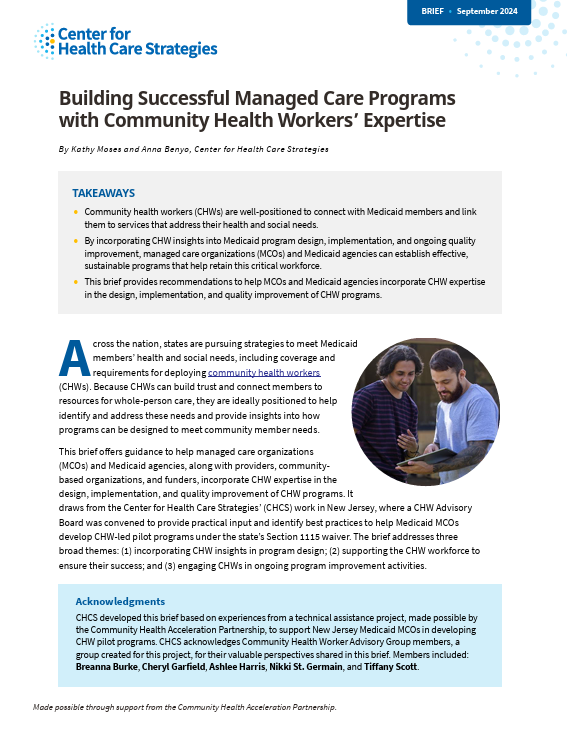Headline
This brief outlines strategies for managed care organizations and Medicaid agencies on how to incorporate community health worker expertise when building or enhancing CHW programs.
Background
As state Medicaid agencies increasingly establish CHW programs to better address the health-related social needs (HRSN) of beneficiaries, CHWs themselves can offer insights to inform the development of CHW services under Medicaid. This brief shares guidance to state Medicaid agencies and managed care organizations on involving CHWs in the development and enhancement of CHW programs and services.
Findings
This brief presents three considerations for designing effective CHW programs under managed care, using examples from a CHW advisory group convened by the authors:
- Incorporate CHW insights into program design – Outlines how managed care organizations can include CHWs in planning activities to advise on program operations, workforce integration, caseloads, budgeting, and engagement with Medicaid members;
- Support the CHW workforce for success – Identifies some key areas, including training, supervision, and support, where states and health plans can support successful and collaborative environment for CHWs engaged in a managed care program; and
- Engage CHWs in ongoing program improvements – Shares how CHWs can assist with measuring outcomes and advise on workflow revisions following program implementation.
The brief also includes actionable recommendations and links to resources for managed care organizations interested in developing CHW programs that are co-designed with CHWs.
Policy/Program Takeaways
Managed care organizations that incorporate the expertise of CHWs into the design and implementation CHW programs may enhance these programs that aim to address Medicaid beneficiaries’ social care needs.

